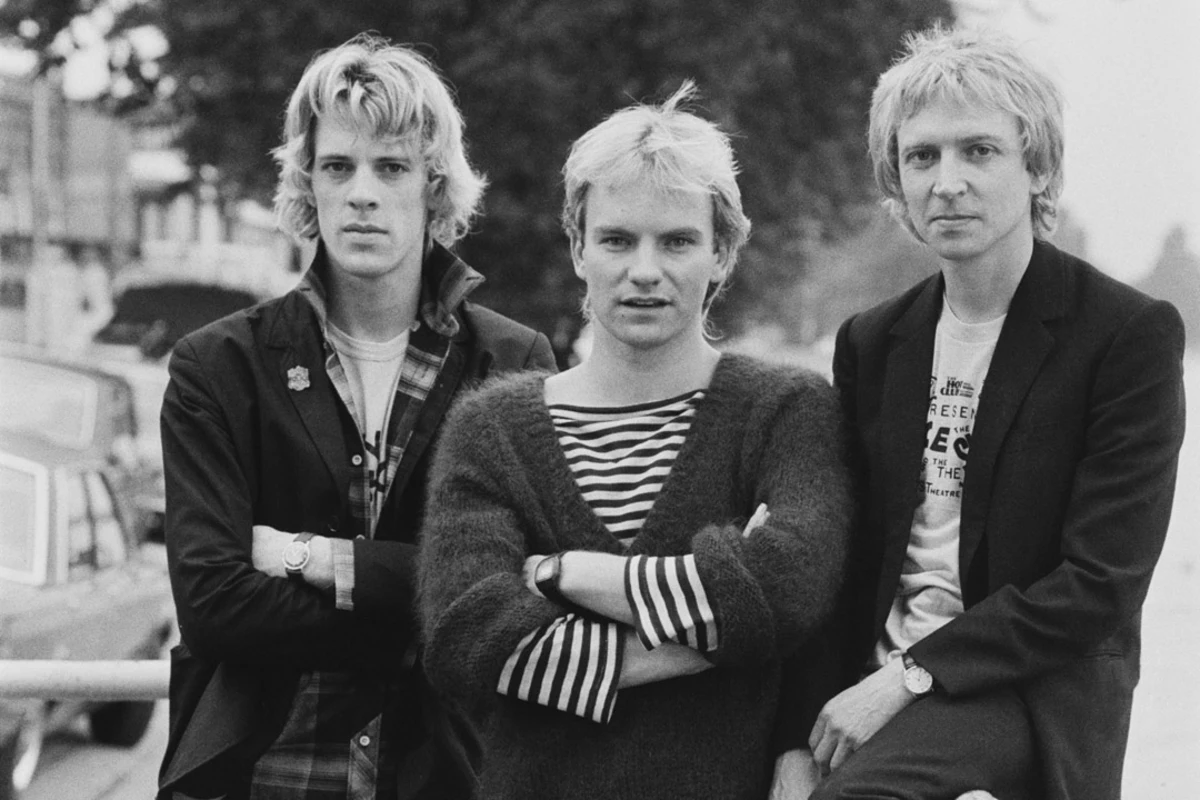Stewart Copeland is at work on a diary-based book that he says will focus on the Police‘s early era.
Set for release in early 2022, the publication intimately recalls signature moments like Copeland’s first encounter with future frontman Sting: “Night off in Newcastle, saw a band called Last Exit. The bass player was great. Get his number.” Their initial rehearsals together uncovered a surprising chemistry, and the Police began to take shape.
Copeland notes there was still a long way to go, describing the era as the “starving years.” The Police were still “carrying amps around, loading in and out of gigs, collecting the money, paying rent. I have those diaries and all of the doodles that go with them, and that’s the book.”
Copeland tells UCR about the upcoming book, while ruminating on how fans impacted the Police’s musical direction and whether the band ever had an underrated era.
Listen the Police’s Debut Single ‘Fall Out’
Looking at the diaries, how did you take stock in it all? Because you certainly don’t comprehend all of that in the moment. You’re doing the work.
I look back and there’s this kind of desperation. At the time, I remember being full of angst and driven but optimistic – assuming, “I know I’m going to make it. We’re going to make it. I know we’re going to make it.” Which is what every band thinks, or else they go and find a different band. But reading back, the energy [as] the day begins. You know, “nine o’clock, picked up the truck. Ten o’clock, over at Sting’s place and picked up his Fender Bassman, drove over to Andy’s. Got to rehearsal. Rehearsed until four. Drove the gear back. Went out for an Indian meal.” Every Indian meal that I had was carefully notated in the diaries. I have no idea what this obsession was! [Laughs.] It was just this pace, day after day after day, the grind of it. At one point, I wrote in the diaries, “I’ve got 70 quid – I owe 70 of it for rent. I’ve got two quid in my pocket, until my next lucky break.”
I think there has to be an element of this in every band, but it was certainly different back then. I love the DIY approach.
We actually did make a living as a band. We paid ourselves. We played a show and our expenses were such, we get paid 20 quid, we spent this on the truck, that on the PA and so on. One roadie, mostly? Actually, we didn’t have a roadie. The PA came with its own guy. We carried our own gear in and set our own gear up. We’d go home that night with five or 10 quid in our pocket.
But you guys put out the independently released early singles “Fall Out” and “Nothing’s Achieving.” There’s a label created to get the music out there. It just seems like there was nothing that was going to stop the band.
Correct. A lot of things did stop the band. You know, that’s all very well and fine, but nothing happened. None of these efforts, none of this diligence, none of this drive – it all meant nothing until Sting wrote “Born in the ‘50s” and then “Roxanne” and “Can’t Stand Losing You,” and the rest of them.
Watch the Police Perform ‘Can’t Stand Losing You’
Is there a strain of the Police material that’s underrated? Like, is there a branch of the discography that you’re particularly fond of?
Not so much, because of the breadth of the Police oeuvre. Every version of the Police, whether the punky stuff or the drifty stuff, has its own following. I don’t think there’s any particular strand of Police music that goes unloved. In fact, one song that people often mention as not being the Police’s finest hour, “Mother,” has its following. Primus do a version that “Mother” that kicks ass.
How much did having the massive hits affect the band’s ability to reach the type of music fans that you ultimately were trying to reach? Because you can have the casual fans that know you for one thing, without perhaps really seeing the whole picture of what it is you’re trying to get across.
Well, maybe it’s a bit selfish, but we didn’t think about the fans all that much. We thought about what we considered to be cool. If a fanbase grew around whatever we came up with, great. There’s a certain amount of arrogance in that. It seems to be working for us to just follow our instincts, so hey, let’s keep doing that.
Top 100 Live Albums
Rock’s Top 100 Live Albums are more than just concert souvenirs or stage documents from that awesome show you saw last summer.

